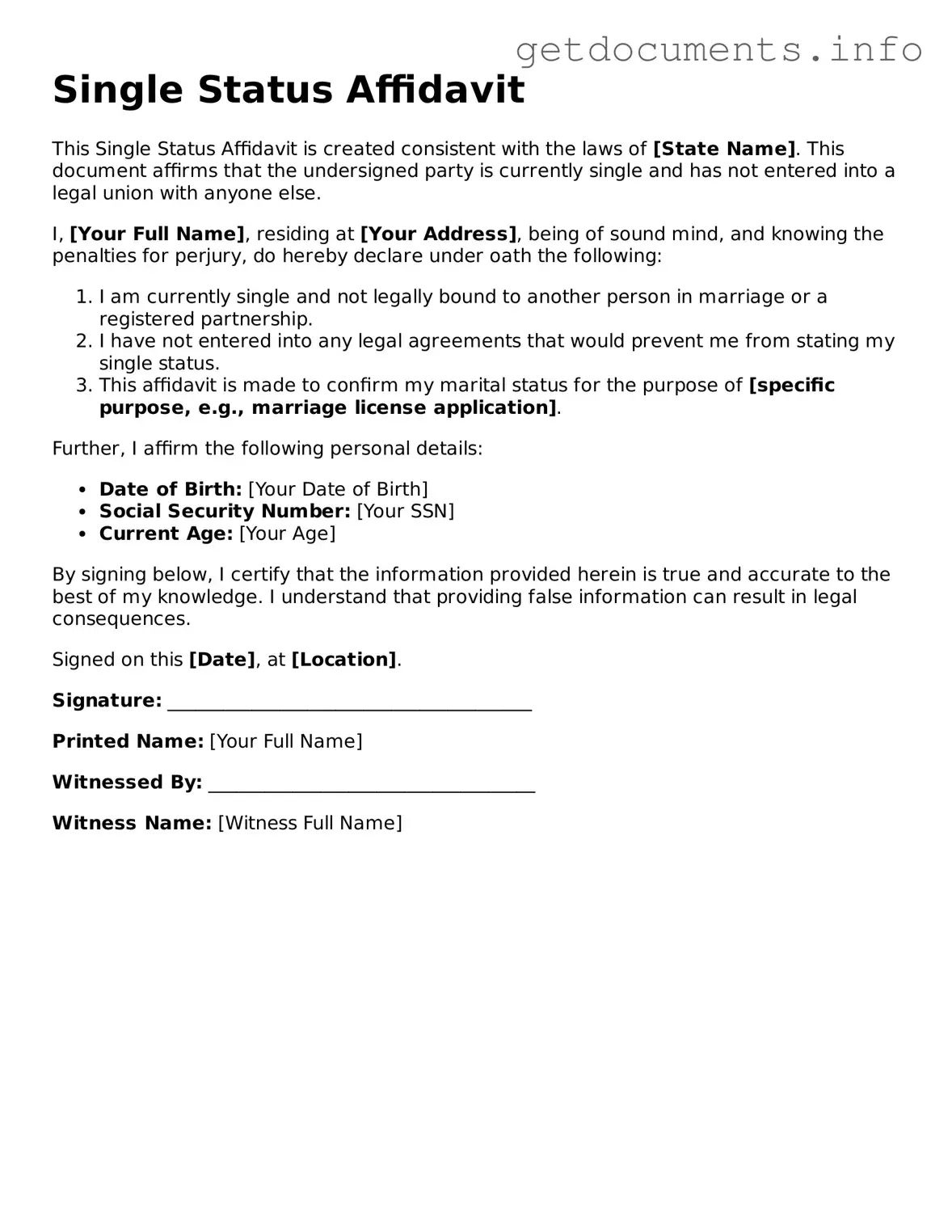Printable Single Status Affidavit Document
The Single Status Affidavit form is a legal document that verifies an individual's single status, often required for marriage or other legal purposes. This affidavit serves as proof that a person is not currently married and is free to enter into a new marriage. If you need to complete this form, click the button below to get started.
Access Single Status Affidavit Editor

Printable Single Status Affidavit Document
Access Single Status Affidavit Editor
Got places to be? Complete the form fast
Fill out Single Status Affidavit online and avoid printing or scanning.
Access Single Status Affidavit Editor
or
⇩ PDF File
